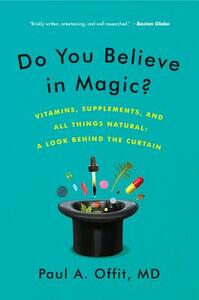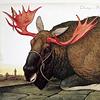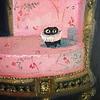Take a photo of a barcode or cover
93 reviews for:
Do You Believe in Magic?: Vitamins, Supplements, and All Things Natural: A Look Behind the Curtain
Paul A. Offit
93 reviews for:
Do You Believe in Magic?: Vitamins, Supplements, and All Things Natural: A Look Behind the Curtain
Paul A. Offit
informative
reflective
fast-paced
Good stuff!
Critical thinking is a myth. Nothing is true (So everything is permitted. Ha!). We either believe or we don't. Medicine, like anything else, is subjective. Hard science isn't so hard, after all, eugenics can make a quack out of you. It was science. Lobotomy, too, was a science that medical people supported.
I guess the "It Could Be Placebo" Approach to the whole thing will make us sleep better at night. I still felt the angry tone of the book. I think the author did his best to be objective but you could tell how he really felt.
I really enjoy Offit's work.
Critical thinking is a myth. Nothing is true (So everything is permitted. Ha!). We either believe or we don't. Medicine, like anything else, is subjective. Hard science isn't so hard, after all, eugenics can make a quack out of you. It was science. Lobotomy, too, was a science that medical people supported.
I guess the "It Could Be Placebo" Approach to the whole thing will make us sleep better at night. I still felt the angry tone of the book. I think the author did his best to be objective but you could tell how he really felt.
I really enjoy Offit's work.
I agree with most of what this author says in regards to conventional science vs medicines like homeopathy and appreciated that he clarified that herbal remedies that work are still medicine, and it's not limited to pharmaceuticals and that there are times when vitamins should be used (ex with newborn babies who don't get vitamin D from mother's milk). And I think in the era of the pandemic that debunking vaccine hesitancy is important.
However, my main problem with this book is its lack of critical analysis of race and class. When describing why he believes people don't go to the doctor's office, he states that people think that doctors are cold and it's not convenient for them to go. He fails to acknowledge the medical debt many people go into without insurance, or even with insurance. There incredibly complicated barriers within the medical system that seem insurmountable for those with high school or less education, and these processes are incredibly confusing to many people. For some people, it is easier to spend $100 a month on herbal remedies that have a placebo effect than $200/month for their medications and then more for additional doctors visits.
There is also a lack of racial analysis in this book and he uses people of colour to prop up his argument using lower-income people in "Asian" countries, and shaman only to engage with his proof of western medicine being better. However, he fails to analyze why people of colour would be hesitant of western medicine after years of racism from colonization and white practitioners. He did not mention the deliberate infection of smallpox toward Indigenous people, or even the Tuskegee Syphilis experiment to acknowledge that historically marginalized people have been experimented on and treated badly by settlers and therefore they have a reason to mistrust western medicine.
Overall, the book was interesting and the history of the creation of the FDA was particularly fascinating to me, but you could probably listen to a podcast with most of the same points that the author has made.
However, my main problem with this book is its lack of critical analysis of race and class. When describing why he believes people don't go to the doctor's office, he states that people think that doctors are cold and it's not convenient for them to go. He fails to acknowledge the medical debt many people go into without insurance, or even with insurance. There incredibly complicated barriers within the medical system that seem insurmountable for those with high school or less education, and these processes are incredibly confusing to many people. For some people, it is easier to spend $100 a month on herbal remedies that have a placebo effect than $200/month for their medications and then more for additional doctors visits.
There is also a lack of racial analysis in this book and he uses people of colour to prop up his argument using lower-income people in "Asian" countries, and shaman only to engage with his proof of western medicine being better. However, he fails to analyze why people of colour would be hesitant of western medicine after years of racism from colonization and white practitioners. He did not mention the deliberate infection of smallpox toward Indigenous people, or even the Tuskegee Syphilis experiment to acknowledge that historically marginalized people have been experimented on and treated badly by settlers and therefore they have a reason to mistrust western medicine.
Overall, the book was interesting and the history of the creation of the FDA was particularly fascinating to me, but you could probably listen to a podcast with most of the same points that the author has made.
informative
medium-paced
There are two kinds of medicine, medicine that works and medicine that doesn't. The rest - whether you call it alternative medicine or mainstream medicine - is just words. A refreshing reminder of the value of evidence-based research. Some alarming information about vitamin pills, if you're interested... Would have given it four stars except that it's essentially an expanded magazine article.
3.5 again for Paul A. Offit. Pleasant listen. Like Bad Faith I feel as though i listened to a series of connected stories that did not all mesh back together at the end. Will still be reading more from Offit I think, depending on what my library has available. He is an accessible writer about issues in medicine. I recommend this book as well as Bad Faith, it's just unlikely that they will floor you.
informative
reflective
fast-paced
On one hand, I agree with just about everything the author says in this book. On the other hand, I can't help feeling that he's preaching to the choir (of which I'm a member), and I doubt that what he says here, and the way he says it, will do much to change the views of those who do "believe" in alternative medicines.
Still struggling to figure out what he could have done differently to pull those folks in and give them something to shift their mindsets, but not quite sure what it would have been. Perhaps a checklist of words or techniques to look for when evaluating promotions or publicity for alternative medicines and healing techniques? Stories from people who had pursued such treatments and had their minds changed by the failure of the efforts (rather than just third-party descriptions or lists of patients who tried it and then died)?
I'm reminded of something I read about the success of conservative media a few years ago, in which it was noted that recitations of "facts" are perceived as condescending to those who disagree with them, and that audiences of true believers are much more responsive to and convinced by personal stories told by people they can identify with (which are perceived as more "true" than actual statistical facts).
Thus a book like this might be more successful if, along with the litany of names and numbers of people who have died, pulled from various news accounts, we have personal stories from them or their surviving families talking about the failures involving them or their loved ones...which may be the only thing that will counter the positive testimonials paraded by the practitioners.
Just a thought.
Still struggling to figure out what he could have done differently to pull those folks in and give them something to shift their mindsets, but not quite sure what it would have been. Perhaps a checklist of words or techniques to look for when evaluating promotions or publicity for alternative medicines and healing techniques? Stories from people who had pursued such treatments and had their minds changed by the failure of the efforts (rather than just third-party descriptions or lists of patients who tried it and then died)?
I'm reminded of something I read about the success of conservative media a few years ago, in which it was noted that recitations of "facts" are perceived as condescending to those who disagree with them, and that audiences of true believers are much more responsive to and convinced by personal stories told by people they can identify with (which are perceived as more "true" than actual statistical facts).
Thus a book like this might be more successful if, along with the litany of names and numbers of people who have died, pulled from various news accounts, we have personal stories from them or their surviving families talking about the failures involving them or their loved ones...which may be the only thing that will counter the positive testimonials paraded by the practitioners.
Just a thought.






